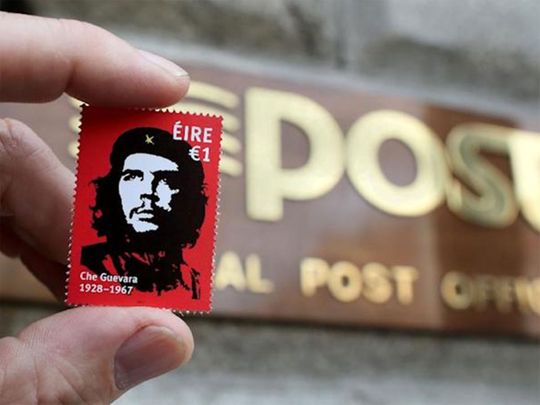
La Paz: The former Bolivian soldier who claimed to have shot dead Marxist revolutionary hero Ernesto "Che" Guevara died on Thursday aged 80, his relatives said.
Mario Teran Salazar shot dead Argentine-born Guevara on October 9, 1967 in the eastern Santa Cruz province of Bolivia at the height of the Cold War.
"He died. He was ill and nothing could be done," Gary Prado, a former Bolivian soldier who helped capture Guevara in the jungle region 54 years ago told AFP.
"The family and comrades from the armed forces told me because he was being treated in the military hospital" in the eastern city of Santa Cruz de la Sierra.
The hospital declined to comment on Teran's death due to "medical confidentiality."
Guevara was captured on October 8, 1967 by the Bolivian army with help from two Cuban-American CIA agents.
Guevara was leading a small band of guerrillas fighting against the army despite suffering from hunger and disease.
An injured Guevara was brought to an abandoned school in the village of La Higuera where he spent the night.
The next day he was riddled with bullets by Teran, with the approval of then-president Rene Barrientos (1964-69), a fervent anti-communist.
"That was the worst moment of my life. At that moment Che looked big, huge, enormous. His eyes were shining intensely," Teran would later say.
"I felt that he was on top of me and when he fixed my gaze I felt dizzy. I thought that with a single quick movement Che could disarm me.
"'Be calm,' he told me, 'and aim well. You are going to kill a man.'
"So I stepped back towards the doorway, closed my eyes and fired."
Guevara, who was just 39, became a legend as his inert body with open eyes was displayed like a trophy in the neighbouring town of Vallegrande, a moment immortalised by AFP photographer Marc Hutten.
After 30 years of army service, Teran retired into anonymity, avoiding the press.
He even went so far as to deny that he killed Guevara.
Born in Rosario, Argentina, Guevara studied medicine and then traveled throughout Latin America.
He met the Cuban brothers Fidel and Raul Castro in Mexico and joined their revolutionary army that took power in Cuba in 1959, ousting US-backed dictator Fulgencio Batista.
Guevara would later unsuccessfully attempt to spark similar Marxist revolutions in Congo and then Bolivia.












